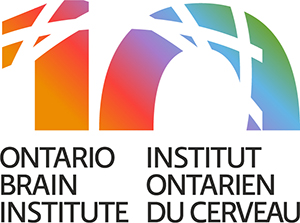Addressing dementia research and care: Can big data help?
Thought leaders from around the globe gather to drive new approaches to the dementia challenge
TORONTO, Sept. 12, 2014 /CNW/ - On Monday, September 15, 2014, the Organisation for Economic Co-operation and Development (OECD) will hold a workshop in partnership with the Ontario Brain Institute (OBI) and the Institute of Health Policy, Management and Evaluation from the University of Toronto (IHPME) to discuss the value of big data in dementia research.
The international meeting brings together over 50 leading researchers, medical doctors, policy makers, analytics experts, and patient advocates to advance international discussion on the opportunities and challenges faced in making use of "big data" to better understand and treat dementia.
Dementia has a large and growing impact on health status and enormous socio-economic consequences. On current estimates, dementia affects more than 35 million people worldwide and the annual costs of dementia, estimated at US$ 604 billion, are growing even faster than its prevalence.
Leading authorities suggest that a better understanding of prevention, treatment, and care of dementia will require linking data on environmental factors, genetics, brain imaging and other types of information that come from laboratory and clinical research.
This meeting will bring together experts from diverse perspectives to discuss the role that big data could play in efforts to delay the onset of— or even cure—dementia. Uniquely, it will take a focus on opportunities surrounding the linking of research (deep) data and health (broad) data. During the meeting, attendees will hear about the opportunities and challenges faced in making use of the big data to better understand the disease, to help develop new ways to prevent and treat dementia, and to optimize health care systems around the world to provide sustainable, high-quality care to those with dementia. Opportunities and challenges will be discussed through the various lenses of experts present who will also provide guidance on moving forward.
The meeting will adjourn with a public talk featuring Mr. George Vradenburg, convener of The Global CEO Initiative on Alzheimer's Disease and Founder and Chairman of USAgainstAlzheimer's Disease. He will speak about the need for science, industry, and government to align their goals, work more closely, fund more effectively, and turn the global crisis of Alzheimer's into an opportunity for healthy aging and innovation. The Globe and Mail's health reporter Andre Picard will moderate the talk.
"Dementia takes a huge toll on families, health systems, and economies. Deep and broad data for innovation in care and research offer a unique opportunity to advance prevention, research and care for dementia; this workshop will help move forward our efforts to address this devastating disease."
- Dr. Dirk Pilat, Organisation for Economic Co-operation and Development, Deputy Director, Directorate for Science, Technology and Industry
"The data generated by research studies on dementia can be combined with the data already contained in health records to improve care for people living with dementia. When the deep insights derived from these data are linked to policy and practice questions we can ensure that people with dementia get the best care and that our health system is best organized to support them and their caregivers. We are pleased to be partner with OBI and OECD on this workshop. U of T is home not only to world-leading neuroscientists, it also has a critical mass of health policy leaders whose knowledge of Ontario's health care system is crucial to linking health services data in a meaningful way."
- Dr. Adalsteinn Brown, Director, Institute of Health Policy, Management and Evaluation, Dalla Lana School of Public Health, University of Toronto
"We are very proud that this is occurring in Ontario, and we wish to take advantage of the opportunity to not only focus our efforts in using research and health data to advance care, but to position Ontario within a global framework among leaders like the OECD."
- Dr. Donald T. Stuss, Ontario Brain Institute, President and Scientific Director
"Ontario supports big data initiatives and—through the important work of the Organisation for Economic Co-operation and Development and the Ontario Brain Institute—I know great strides will continue to be made towards the prevention and better treatments for people living with dementia and other diseases. Our government has a plan that invests in people and we want to help patients and their families who suffer from devastating effects of dementia. I eagerly look forward to the findings and outcomes from the International Dementia Workshop."
- Reza Moridi, Ontario Minister of Research and Innovation and Minister of Training Colleges and Universities
The meeting is a closed event. The talk is open to the public free of charge—register online here: https://www.eventbrite.com/e/the-activists-imperative-how-to-drive-urgency-and-unity-in-the-work-of-halting-alzheimers-with-tickets-12634832123
For more information about the OECD's focus on dementia : http://www.oecd.org/health/dementia.htm
For more information on IHPME:
http://ihpme.utoronto.ca/
About the Ontario Brain Institute
The Ontario Brain Institute is a provincially‐funded, not‐for‐profit research centre seeking to maximize the impact of neuroscience and establish Ontario as a world leader in brain research, commercialization and care. We create convergent partnerships between researchers, clinicians, industry, patients, and their advocates to foster discovery and deliver innovative products and services that improve the lives of those living with brain disorders.
http://www.braininstitute.ca/homepage
SOURCE: Ontario Brain Institute

Media Contact: Michelle Wilson, Communications Lead, Ontario Brain Institute, T: 647-872-1215, M: 647-525-7583, [email protected]

Share this article